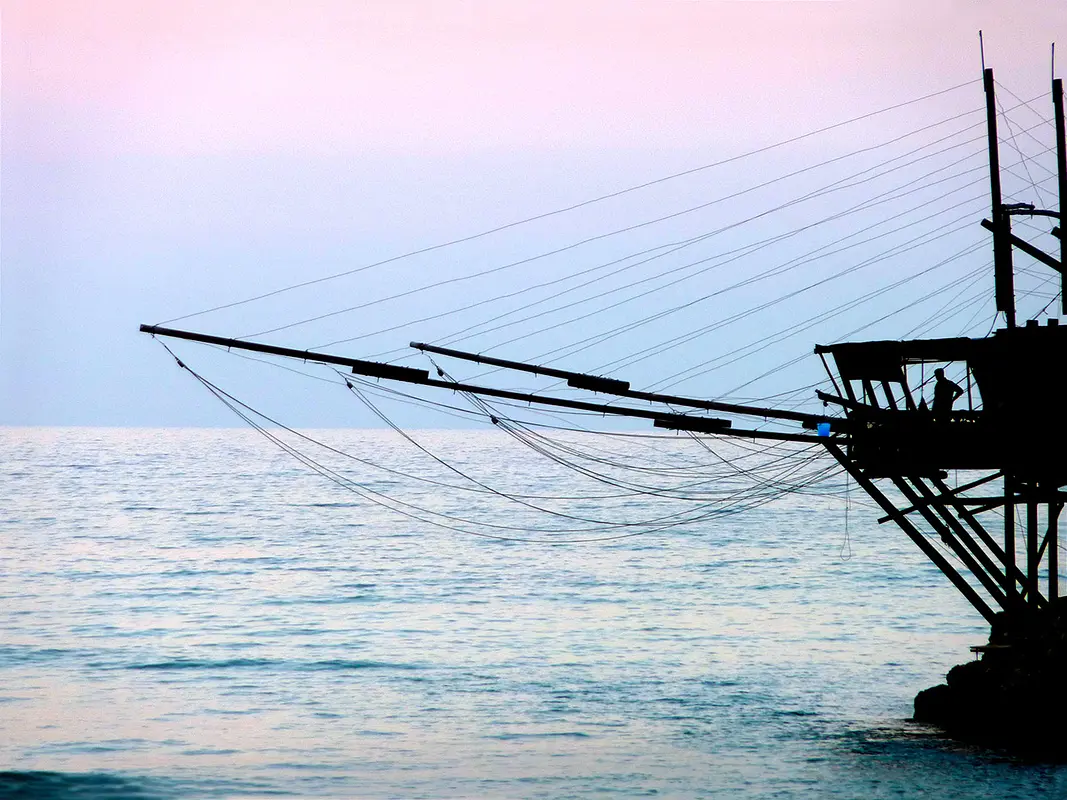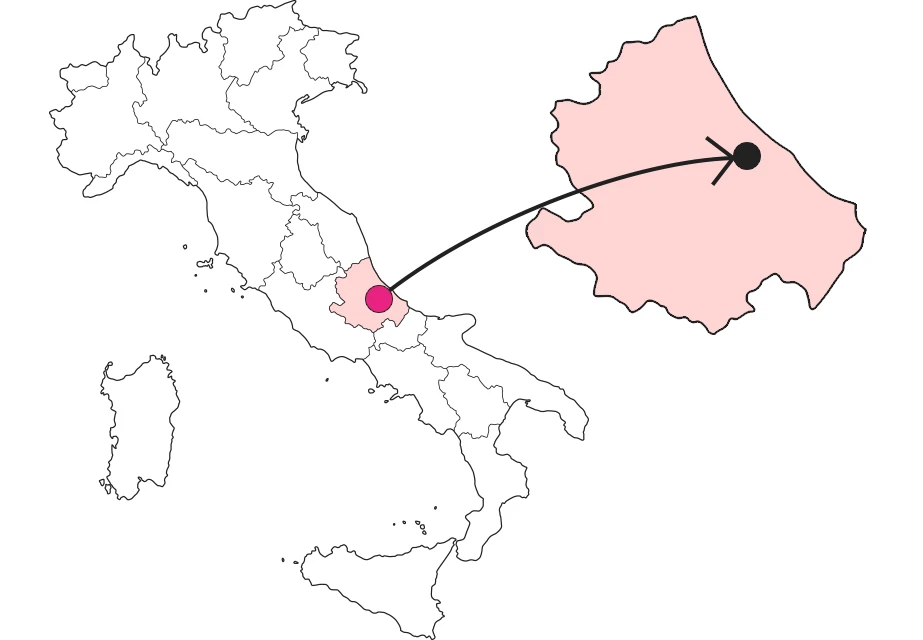SHARRYLAND













Flavors of the Trabocchi Coast: Cala Lenta and Brodetto
The flavors of a tradition bathed by the sea

Where is

The Costa dei Trabocchi, a beautiful area, an unbreakable bond with the sea and its flavors and a desire to promote good practices, sustainability and awareness.
The Cala Lenta
One of the favorite means of promoting these values is the "Cala Lenta," a traveling event, a review dedicated specifically to the stretch of the Adriatic coastline that covers the entire province of Chieti, the Costa dei Trabocchi. The purpose is to promote and support a new environmental and food culture. It is organized by the nonprofit association "Slow Food Lanciano," takes place every two years in July, and through events, workshops, debates, markets and show cooking enhances the Adriatic's fish species, small-scale fishing and blue fish. The chosen venue is the ancient village of San Vito Chietino, but some activities also take place in Ortona and Vasto.
 Cala Lenta events are a fantastic opportunity to learn about conscious consumption of seafood products
Cala Lenta events are a fantastic opportunity to learn about conscious consumption of seafood productsFrom the sea to the table via the trabocco
There are two absolute protagonists of Cala Lenta: the trabocchi, historical fishing tools, and Brodetto, a typical dish from Vasto and more generally from the entire Trabocchi Coast. Both are linked by tradition rooted in the territory and its people. A territory made up of a coastline where sandy shores and rocky coves alternate , small villages and ancient abbeys inland, and lanky, slender structures suspended in a surprising balance between land and sea. These are precisely the trabocchi, which until the 1960s were the main piece of the local micro-economy. It is hard to say which recipe is the best made from the result of the trabocchi's activity; one of the most typical is Brodetto, itself an ancient companion of the local people.
 Brodetto
BrodettoHis Majesty the Brodetto
This is a typical dish of Vasto and more generally of the entire Costa dei Trabocchi, a treasure chest that encloses the soul of the territory: within it there is the sea with its rockfish such as scorpion fish, tracina, testone, panocchia, cuttlefish and mullet to which are added, depending on the season, other fish and shellfish such as hake, skate, dogfish and squid. But there is also the land with its fruits: extra virgin olive oil, fresh ripe tomato, sweet green bell pepper, parsley, garlic and hot chili pepper. The different cultures of fishermen and farmers coming together in an extraordinary dish. The fish are laid down one at a time according to hardness and cooked whole in the low, wide earthenware pot, the "tijèlle." A strict specification states that the brodetto should never be stirred with a fork and spoon but only "trizzicato" by grasping the pan by the handles and swirling it to prevent it from sticking to the bottom of the crock. It should be eaten by dipping bread (fresh or toasted) in the sauce or with boiled pasta seasoned with its sauce directly in the pan. Brodetto originated from bartering between peasants and fishermen who exchanged vegetables for fish among themselves, but it turned red, taking on the appearance it has today, with the arrival of tomatoes from America in the late 1800s. The first evidence in local vegetable gardens of "mezzitempi" (Tuscan ribbed) tomatoes, with which the historic dish is to be prepared, dates to this era.
Enter the Map of Italy's Undiscovered Wonders and find treasures where you least expect it... Inspire, Recommend, Share...
Contact
Collections
The Map thanks:
In the Community
Enter the Map of Italy's Undiscovered Wonders and find treasures where you least expect it... Inspire, Recommend, Share...
Where is

Contact
Collections

